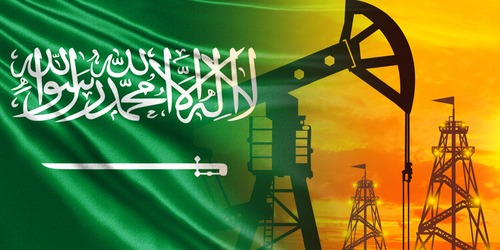Saudi expects fiscal deficit of 3.3% of GDP in 2026
Saudi Arabia is expected to record a fiscal deficit of $44.2 billion (166 billion Saudi riyals) next year, the kingdom’s finance ministry has estimated.
The deficit for 2026, estimated at 3.3% of the kingdom’s gross domestic product, is a sharp drop from 5.3% projected for this year.
Despite the projected deficit for 2026, the government will continue to adopt “expansionary spending policies that are contrary to the economic cycle”, the finance ministry said in a statement on Tuesday. The funds will be directed towards national priorities with social and economic impact.
Government revenues for 2026 are expected to total $305 billion (1.147 trillion Saudi riyals), with expenditures totalling $350 billion (1.313 trillion Saudi riyals). Inflation is set to rise 2.3% this year, before dipping to 2% in 2026.
Total revenues are expected to reach about $345 billion (1.294 trillion riyals) in 2028, with total expenditures estimated to touch $378 billion (1.419 trillion riyals) the same year.
Mohammed Aljadaan, Saudi minister of finance, said that the kingdom’s ratio of public debt to GDP is still at relatively low levels compared to other economies, and that it is within safe limits compared to the size of the economy, and supported by financial reserves.
The government continues to support economic growth by continuing development projects and implementing national strategies and motivating the private sector to be an effective partner in development, he added.
Saudi economy is expected to grow 4.4% this year, according to ministry data, higher than the International Monetary Fund’s July projection of 3.6%. The fund expects the kingdom’s GDP to grow by 3.9% in 2026, lower than the ministry’s projections of 4.6%.
The kingdom has been running budget deficits since 2022, as reduced oil revenues squeeze state coffers. Brent crude, which serves as a benchmark for roughly two-thirds of the world's crude oil supplies, dipped nearly 14% since the beginning of the year.
Saudi Arabia needs oil to be north of $92 per barrel this year and at $86.6 per barrel in 2026 to balance its books, according to the IMF. It is currently hovering around $65 per barrel mark, well below levels needed for fiscal equilibrium.

Salaam Gateway